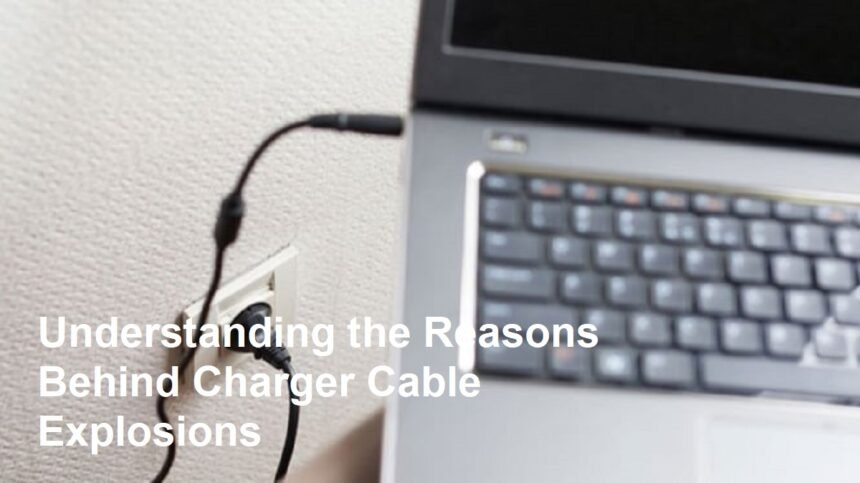Introduction
Laptop chargers have become an essential part of modern life, powering our devices and enabling us to work, communicate, and entertain. While most chargers operate safely, occasional incidents of charger cables exploding or catching fire are alarming and can pose serious safety risks. Understanding what causes these dangerous events is crucial to prevent accidents and maintain safety.
What Causes Laptop Charger Cables to Explode?
Although rare, charger cable explosions can occur due to several reasons related to manufacturing faults, electrical issues, and external factors. Here are the primary causes:
1. Manufacturing Defects
One of the leading causes of charger explosions stems from manufacturing flaws. Poor-quality materials, faulty wiring, or substandard insulation can cause electrical malfunctions. If internal components are improperly assembled or defects exist, they may generate excessive heat or sparks, leading to flames or explosions under certain conditions.
2. Electrical Short Circuits
A short circuit happens when the internal wiring of the charger comes into contact with unintended connections, causing a sudden surge of electricity. This surge can generate intense heat, leading to melting insulation, sparks, and potentially explosions. Short circuits often originate from damaged wires or manufacturing defects.
3. Overcurrent or Overvoltage
Supplying more power than the charger is designed to handle can overload its internal components. Overcurrent or overvoltage situations can cause overheating, damaging internal electronics and insulation. Excess heat buildup can ignite the plastic casing or wiring, resulting in explosions.
4. Use of Counterfeit or Poor-Quality Chargers
Using fake or uncertified chargers significantly increases the risk of explosions. These chargers often lack proper safety standards, contain inferior materials, or do not have necessary protections such as temperature regulation, circuit breakers, or overvoltage protection. Consequently, they are prone to overheating and explosion.
5. Physical Damage and Wear
Physical damage to the cable—such as bending, twisting, crushing, or exposure to extreme temperatures—can compromise the internal wiring or insulation. Over time, damaged insulation exposes wires, increasing the risk of short circuits and sparks, especially if there’s a spark or electrical overload.
6. Moisture and Water Exposure
Electric devices and cables are not water-resistant. Exposure to moisture or water ingress into the charger can create unintended conductive paths, resulting in short circuits. These electrical faults can generate sparks or heat, potentially leading to explosions.
7. Poor Ventilation and Overheating
Charging devices produce heat, and if a charger is used in a confined or poorly ventilated area, the heat can accumulate. Overheating components or the plastic casing might soften, melt, and ignite, especially if combined with electrical faults.
How to Prevent Charger Explosions
While such incidents are rare, taking safety precautions can minimize risks:
- Use Original or Certified Chargers: Always use genuine chargers certified by your device manufacturer. Avoid cheap, unbranded, or counterfeit chargers.
- Inspect Cables Regularly: Check for signs of wear, fraying, or damage. Replace damaged cables immediately.
- Avoid Overloading: Do not overload outlets or daisy-chain multiple devices in a single socket.
- Keep Cables Dry and Clean: Avoid exposure to water or moisture. Keep cables away from liquids.
- Proper Storage and Handling: Store chargers in a cool, dry place. Avoid bending or twisting cables excessively.
- Ventilate Charging Areas: Charge devices in well-ventilated areas to prevent heat buildup.
- Replace Old Chargers: If your charger shows signs of overheating, melting, or unusual smell, replace it immediately.
What to Do If Your Charger Smells or Sparks
If you notice a burning smell, sparks, or any unusual behavior from your charger, disconnect it immediately. Do not attempt to repair or open the device. Instead, dispose of it safely and replace it with a certified, compatible charger.
Conclusion
While rare, charger cable explosions are primarily caused by manufacturing defects, electrical faults, counterfeit products, physical damage, or water exposure. Being vigilant about the quality of your charger, proper handling, and routine inspections can significantly reduce the risk of accidents. Always prioritize safety and invest in reliable, certified charging accessories for your devices.












